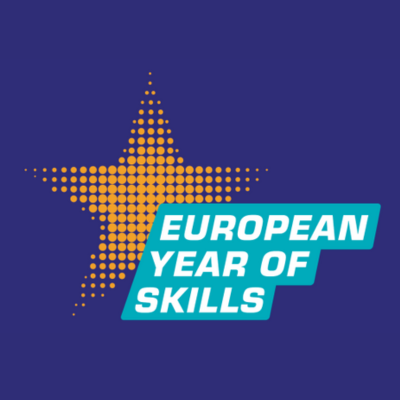From the European Centre for for the Development of Vocational Training CEDEFOP
Anticipating the skills needs for specific economic sectors paves the way for comprehensive strategies that effectively prepare the labour market for the challenges ahead.
This was the main conclusion of an online event organised by Cedefop on 26 September that brought together about 150 VET providers, guidance practitioners and other actors from around Europe to exchange experience of sectoral skills intelligence and its value for relevant policies and interventions that can lead to a just transition.
During Cedefop’s 3rd virtual get-together, as part of the Agencies extensive programme of activities during the European Year of Skills, Cedefop’s Stelina Chatzichristou analysed how the Agency’s work on skills intelligence, skills forecast, skills foresight, skill surveys, big data, supports policy- and decision-making at European Union and national level, particularly when it comes to the changes in the labour market that arise from the green and digital transitions.
She also presented the methodology that Cedefop’s research employs and the scheme of ‘permaskilling’ it proposes aiming at future-proofed jobs.
Antonius Schröder of TU Dortmund University spoke of the industry-driven proactive adjustment of the future skills demands, a process developed by the industry and for the industry, and presented the lessons learned by the sectoral blueprints of European Steel Skills Agenda (ESSA) and the Skills Alliance for Industrial Symbiosis.
Rino Vitelli of Federturismo Confidustria shared the experience from Next Tourism Generation Alliance and the Pact for Next Tourism Generation Skills (PANTOUR), noting among others that the sectoral skills intelligence produced for the tourism industry allows for joint action in order to maximise the impact of investing in upskilling (improving existing skills) and reskilling (training in new skills). ‘It calls on social partners, public authorities, employment agencies, education and training providers to work together and make a clear commitment to invest in training for all working age people across the EU,’ he added.
A panel discussion with Cedefop’s Jasper van Loo focused on the national experience in the use of skills intelligence in the cases of Estonia, Greece and Portugal and the benefits of sharing experience and expertise across borders, as well as he solar revolution and what it means for employment, VET and skills in Europe.
Download the presentation.


